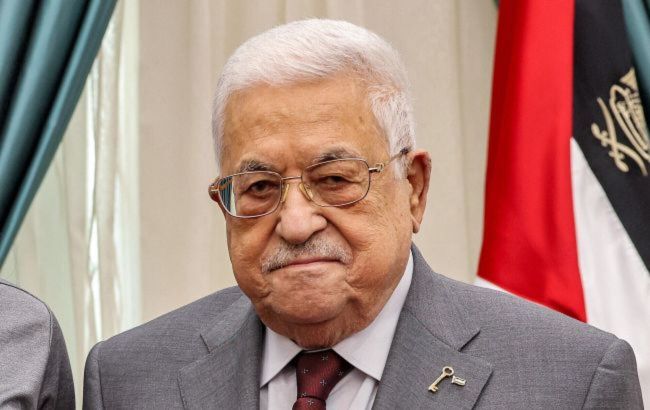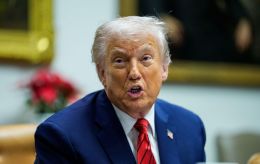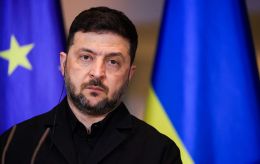US seeks to block recognition of Palestine at UN General Assembly session - CNN
 Photo: President of the Palestinian Authority Mahmoud Abbas (Russian media)
Photo: President of the Palestinian Authority Mahmoud Abbas (Russian media)
The United States is refusing to issue a visa to Palestinian Authority President Mahmoud Abbas for participation in the upcoming UN General Assembly session. The decision was made in response to plans by several countries to recognize the State of Palestine, according to CNN.
On Friday, August 29, the US State Department announced it was "denying and revoking visas" for members of the Palestinian Authority (PA) and the Palestine Liberation Organization (PLO).
A State Department spokesperson said that President Mahmoud Abbas was included in this action, along with around 80 other PA officials. According to the announcement, the Palestinian Authority’s mission to the UN would "receive waivers per the UN Headquarters Agreement."
However, media outlets noted that denying Abbas a visa likely violates that agreement, as the UN recognizes Palestine as a non-member observer state.
In its statement, the State Department accused the PA and PLO of taking steps that "materially contributed to Hamas’s refusal to release its hostages, and to the breakdown of the Gaza ceasefire talks." Deputy spokesperson Tommy Pigott wrote on X that before being taken seriously as peace partners, the PA and PLO must "completely reject terrorism and stop counterproductively pursuing the unilateral recognition of a hypothetical state."
CNN reported that this policy will substantially limit the Palestinian presence at the 80th annual UN General Assembly session, at a time when the Gaza war continues and several Western allies prepare to recognize the State of Palestine.
Reactions: 'Unjust decision'
The Palestinian presidency expressed "deep regret and astonishment" at the decision, urging the US to "reconsider and reverse its decision."
European leaders also criticized the move. Spanish Prime Minister Pedro Sánchez called the visa decision "unjust," writing on X that "Palestine has the right to make its voice heard at the United Nations and in all international forums." France’s foreign minister Jean-Noël Barrot voiced a similar stance, stressing that "UN General Assembly meeting… should not be subject to any restrictions on access."
Palestinian Ambassador to the UN Riyad Mansour said his delegation would issue a formal response once it was clear how the decision would be implemented.
The Organisation of Islamic Cooperation (OIC), which includes 57 member states such as Saudi Arabia, the UAE, Qatar, Egypt, Indonesia, and Pakistan, condemned the decision as "discriminatory" and urged the US to reverse it, calling it a violation of international law and the UN Headquarters Agreement.
Several analysts noted that barring Palestinian officials from attending a key gathering in New York undermines diplomatic efforts toward a ceasefire in Gaza.
Israeli officials, including Foreign Minister Gideon Sa’ar and UN Ambassador Danny Danon, welcomed the US move.
CNN added that in July, the State Department had already imposed sanctions denying visas to unnamed PA and PLO officials. The outlet suggested the latest action may also be linked to Washington’s disapproval of international tribunal investigations into alleged Israeli war crimes.
The Palestinian Authority, in its own statement, said the PA must not be pressured into abandoning legal avenues such as cases before the International Criminal Court and the International Court of Justice, or efforts to gain unilateral recognition of statehood.
UNGA context
The 80th session of the UN General Assembly begins in September 2025 and runs through September 2026. It will be chaired by former German Foreign Minister Annalena Baerbock.
Recognition of Palestine
Palestine is a partially recognized state in the Middle East, comprising the West Bank and the Gaza Strip. To date, 139 of 193 UN member states recognize its sovereignty.
Western European countries began recognizing Palestine in 2014 amid clashes in East Jerusalem. Sweden was the first, followed by Bulgaria, Cyprus, the Czech Republic, Hungary, Poland, and Romania.
Most European countries recognize Palestine within the pre-1967 borders.
In late July, French President Emmanuel Macron announced plans to formally recognize the Palestinian state during the UNGA session. France also formed an international coalition of 15 states backing recognition.
UK Prime Minister Keir Starmer also signaled his intention to recognize Palestine, though without setting a timeline. Australia has likewise declared its readiness to recognize Palestinian statehood.

